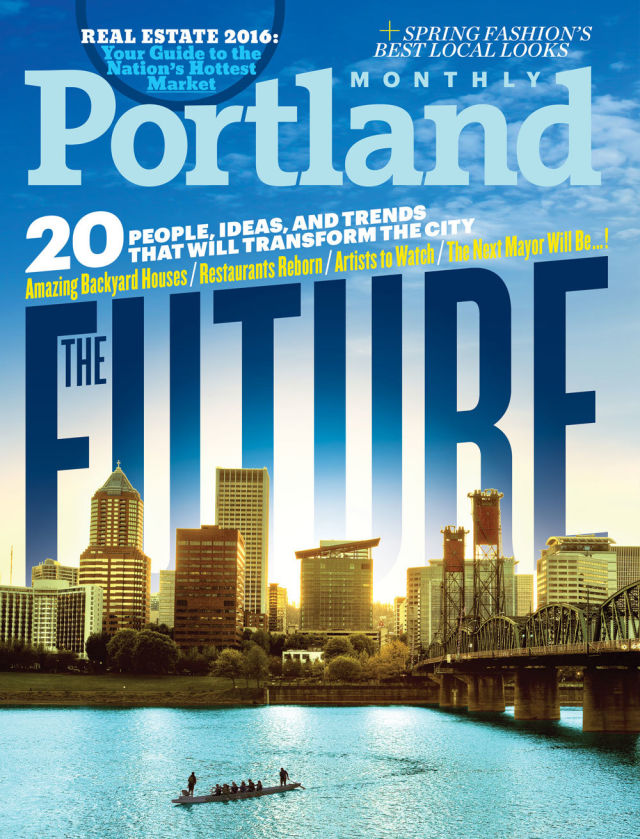When an Average White Editor Screws Up

Here’s a thing that happened: In our April issue, Portland Monthly published an essay about choosing among various options in public and private schools. In print and online, we paired the story with a satirical illustration, altering the classic SCHOOL XING street sign to show its generic humanoids armed with something like arrows. The headline we devised (which the writer of the actual story, as is typical, had nothing to do with) used the phrase “hostile tribes.”
The first few tremors of outrage rumbled in Facebook and Twitter comments, suggesting that this combination evoked negative stereotypes of Native Americans. I must say that I pretty much ignored them, as the many Internet-comment-inflicted scars to my ego, emotions, and faith in humanity’s future have trained me to do. And, probably, I was acting (or not acting) with my own baggage on board. Sociologically, I’m about as white/cis-male/middle-class as it gets, and thus not naturally attuned to the concept of microaggressions, to use one current term. Professionally, my development stretches back to the early ’90s, when we budding First Amendment absolutists thought Tipper Gore, with her push to label and restrict music featuring explicit lyrics, was absolutely the worst person alive, and that a willingness to offend was sort of the point of writing.
But the situation’s first lesson turned out to be that conversation matters. A lot. I soon also had a voicemail box full of messages from Native American community leaders. (Portland, by the way, is a big and vibrant and plugged-in part of Indian Country, with one of the nation’s largest urban Native American populations.) Real-time human dialogue fosters a dynamic much different than the reactionary madness of the Internet, and calling those people back transformed my understanding of what was going on.
Specifically, I realized we’d screwed up. Yes, arrows and tribes are universal human metaphors. As words and images, they also have specific and inescapable meanings in the Pacific Northwest. Our mistake lay in our failure to even think about how those meanings would resonate with our Native American readers and fellow Portlanders.
(Lesson no. 2: not everything that’s defensible on abstract grounds serves the greater good of the community, our readers, or the magazine’s real-world mission to cover Portland.)
I wrote an apology, as quick as I could humanly write, and we published it on our website. And I hereby restate that apology in print, at the first opportunity I’ve had to do so. No journalist likes to apologize for content. But as I wrote in that message, we’d caused anger and confusion among readers and communities we care about.
Could it happen again? I’m sure it could. But I think the whole experience left our staff smarter than it used to be. Hopefully that includes me.
Zach Dundas
Editor in Chief


